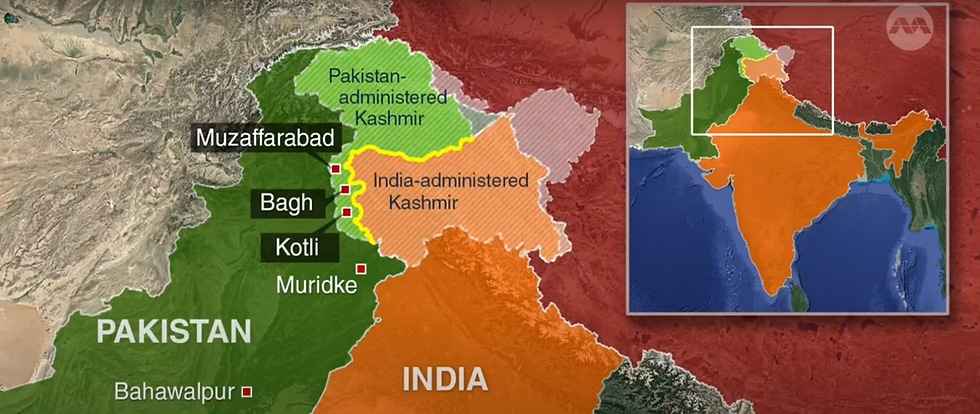"Operation Sindoor: India Strikes Back After Pahalgam Terror Incident"
- Amit Yadav
- May 7
- 2 min read
Updated: May 7

On May 6, 2025, India launched a series of coordinated missile strikes under Operation Sindoor, targeting terrorist infrastructure in Pakistan and Pakistan-administered Kashmir. This action was in direct response to the April 22 Pahalgam attack in Jammu and Kashmir, which resulted in the deaths of 26 civilians, predominantly Hindu tourists.
Key Developments from India's Perspective
Targeted Strikes on Terrorist Infrastructure
India's Ministry of Defence reported that the strikes focused on nine locations associated with terrorist groups such as Lashkar-e-Taiba and Jaish-e-Mohammed, located in Muzaffarabad, Kotli, and Bahawalpur. The operation was described as "focused, measured, and non-escalatory," deliberately avoiding Pakistani military installations to minimize the risk of broader conflict.
Military Engagements and Casualties
According to Indian sources, over 70 militants were killed and 60 injured in the strikes. India also reported the downing of a Pakistani fighter jet over Pampore. Conversely, Pakistan claimed to have shot down five Indian fighter jets and a drone, though independent verification of these claims is pending.
Civilian Impact and Infrastructure Damage
Pakistan reported that the strikes resulted in the deaths of at least nine civilians, including a child, and injuries to 38 others. Notably, a mosque in Bahawalpur was among the structures hit. India has maintained that all targets were selected based on credible intelligence linking them to terrorist activities.
Domestic Preparedness Measures
In anticipation of potential retaliatory actions, India initiated Operation Abhyaas, a nationwide civil defense drill across 244 districts. The exercise included testing air raid sirens, simulating blackouts, and training civilians in emergency response protocols.
Diplomatic and International Reactions
The international community has expressed concern over the escalating tensions. United Nations Secretary-General António Guterres called for restraint, emphasizing the risks of military confrontation between the two nuclear-armed nations. The United States and other global powers have urged both countries to de-escalate and engage in dialogue.
Strategic Water Management Actions
Following the Pahalgam attack, India suspended the Indus Waters Treaty, significantly reducing the flow of water through the Chenab River into Pakistan. Pakistan reported a 90% drop in water supply, raising concerns about potential agricultural impacts.
Current Status
As of May 7, 2025, the situation remains tense, with both nations on high alert. Cross-border shelling has intensified, leading to additional civilian casualties on both sides. Diplomatic channels are strained, and the risk of further escalation persists.






In such tense times when national security dominates headlines, it's ironic how people often seek emotional escape and companionship in private spaces. Services like Rohini Escorts are discreetly witnessing a spike—not just for pleasure, but for stress relief and human connection.